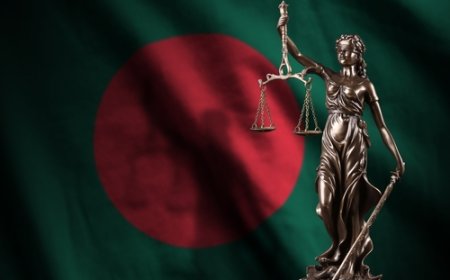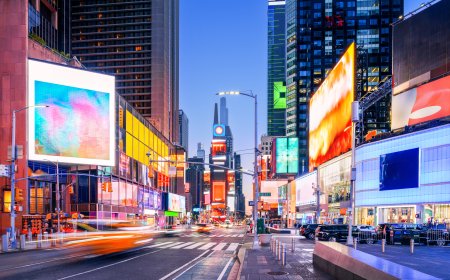The Mamdani Moment and Bangladesh’s Missed Chance
The NYC mayor-elect did what Bangladeshi politics refuses to do: Connect democratic renewal to economic dignity. He showed that when people believe their material lives will improve, they don’t hesitate to show up.

Zohran Mamdani’s election as the mayor of New York City has already been hailed as a turning point for progressive politics in the United States. Apart from that, the Mamdani moment has another significance far across the oceans.
The analogy may seem far-fetched; however, it resonates deeply with the counterpart. For Bangladesh -- still reeling from the rise and abrupt collapse of youth-led mobilization in 2024, including the July Charter and the so-called anti-discrimination movement -- Mamdani’s victory offers a sobering lesson in why some movements build power while others fade out.
And that lesson is blatantly simple: politics grounded in people’s material realities wins; politics built on slogans and symbolism cannot survive, as the hollowness around the July Charter has been fleshed out each day.
What Mamdani Did Right -- and Bangladesh Didn’t
Mamdani, the son of South Asian immigrants, did not win New York by appealing only to identity. He managed to make it despite the federal government's resistance, running on the everyday economics of survival: Housing costs, rent gouging, childcare burdens, and broken public transport.
His campaign told voters -- Bangladeshi, Latino, black, Arab, white -- what no centrist politician dared to say: “Your life is unaffordable, and it doesn’t have to be this way.”
In Bangladesh, the "July Revolutionaries" have yet to make any bold or decisive statements, nor do they play a role in improving the daily struggles faced by hundreds of thousands of hardworking individuals.
In fact, the conditions for the working masses have remained unchanged and even worsened to a certain extent over the past year and a quarter.
The July Declaration briefly captured the public imagination, mostly as a new political settlement, however vague.
Among the points outlined in the July Declaration, one cannot help but notice what is missing rather than what is present. There is not a single mention of poverty alleviation, job creation, or the growing gulf of economic and social inequality.
This silence is striking, especially when one recalls that the July mass uprising began from a movement against the discriminatory quota system in government employment. Workers and ordinary citizens had taken to the streets demanding freedom from injustice and inequality.
The declaration proclaims equality, human dignity, social justice, and religious freedom as the guiding principles of the state. However, the term "social justice" remains frustratingly undefined. Does it refer to the equitable distribution of wealth, access to education and healthcare, or is it merely a rhetorical flourish intended to appease idealists?
Without clear definitions, these concepts risk becoming empty slogans, disconnected from the realities of the people they are meant to serve.
Reading through the background of the declarations, one is left surprised -- if not disappointed -- by the omissions. Several defining moments of Bangladesh’s political history have been brushed aside: Bangabandhu Sheikh Mujibur Rahman’s historic speech on March 7, the formation of the provisional government on April 17, the massacre of intellectuals on December 14, Victory Day on December 16, and the assassination of Bangabandhu and his family on August 15, 1975. Even the killing of Ziaur Rahman in 1981, the fall of military autocracy in the 1990 mass uprising, and later debates over the caretaker government and the judiciary’s retirement age have been conveniently left out.
If these elements had been included, the Charter could have gained moral and historical significance -- one that recognized Bangladesh’s intricate journey marked by pain, struggle, and renewal. The Interim Government and the Consensus Commission had a chance to create such an inclusive document. However, once again, we as a nation have failed to forge a national consensus.
In the end, a nation’s moral integrity lies not only in what it promises for the future, but in how truthfully it tells its past. The Charter’s omissions speak loudly, reminding us that history, when fragmented, divides a nation more deeply than any political boundary ever could.
Political Economy Matters
Bangladesh is currently facing significant challenges, mainly related to its economy, and these problems are also causing political issues. In cities like Dhaka and Chittagong, many people are worried about rising costs for things like food, rent, gas, and electricity. There are also concerns about not having enough job opportunities, transportation difficulties, and the high cost of living in urban areas.
The relationship between politics and the economy is very close, as much of the economy operates informally. This means that getting access to economic opportunities often relies on connections and support from people in power. This situation is made even harder by the growing number of unemployed young people.
Yet Bangladesh’s mainstream political discourse is trapped in an endless loop: election procedures, party rivalries, diplomatic statements, and constitutional theatrics. The country debates everything except the things suffocating its citizens.
For this reason, there is hardly any common ground in politics. History demonstrates that our nation's achievements largely arise from consensus among political parties. These achievements include the reintroduction of the parliamentary system of government, efforts in poverty alleviation, reducing child and maternal mortality, improving immunization rates, and promoting women's empowerment, among others. The involvement of individuals in politics has often been shaped by these various factors, specifically.
Mamdani’s success exposes this gap with painful clarity.
He did what Bangladeshi politics refuses to do: connect democratic renewal to economic dignity. He showed that when people believe their material lives will improve, they don’t hesitate to show up. New York saw its highest turnout since 1969. Bangladesh sees declining turnout, cynical youth, and politics of exhaustion -- not because people don’t care about democracy, but because democracy has not cared enough about their lives.
The Centrist Trap
Bangladesh’s political class -- like their American counterparts -- continues to insist that centrism is the only safeguard against extremism. Stability over change, continuity over disruption, “responsible management” over bold reforms.
But centrism’s message, in both countries, is essentially:
“Nothing will get better. Accept this -- and vote accordingly.”
This message no longer convinces anyone.
In the US, decades of centrist governance created the vacuum that Donald Trump stepped into. In Bangladesh, similar governance has produced soaring inequality, corruption fatigue, and generational frustration, which have made its youth highly vulnerable. The Mamdani campaign demonstrates an alternative: that anti-authoritarian politics must be material politics.
The failure of the 2024 anti-discrimination movement is not mysterious. It was predictable. Because it never answered the question: “How will this make life better for the majority?”
It did not speak to the 22-year-old garment worker commuting from Savar, the private university student paying impossible rent in Mohammadpur, the middle-aged bus driver crushed by inflation, or the parent juggling school fees and rice prices. Identity-based grievances matter deeply -- but without a class-based anchor, they cannot mobilize a broad coalition. Mamdani got this balance right. Bangladesh’s movements did not. In fact, it was never meant to be; what it actually meant was to take a rightward turn as if our identity was being diluted under the Awami rule.
Lessons for the Left
Zohran Mamdani’s victory rings a vital reminder for Bangladesh’s left: enduring power emerges not from slogans, but from expanding the horizon of people’s real freedoms. His campaign -- rooted in the daily crises of rent, transport, and survival -- embodied Amartya Sen’s capability approach, which sees development as enlarging people’s ability to live the lives they value.
The history of Bangladesh offers a similar precedent. In the 1954 election of erstwhile East Pakistan, the leftists -- many of them organisers from the Tebhaga and Tonk sharecropper movements -- won 21 seats, not through elite identity-based rhetoric but by aligning politics with peasant struggles. Their victory showed how education and mobilization could merge into a people’s awakening, where the ballot became an extension of the plough.
Today’s Bangladeshi left has drifted far from that grounding. The working of the collective left is disconnected from the anxieties and aspirations of ordinary people. Their failure to engage meaningfully with the quota movement, right from the beginning in 2018, exposed this distance with painful clarity.
What began as a broad demand for justice and equality in public employment soon became an unanchored youth outburst, lacking a coherent economic or class perspective. The left utterly failed to see the seeds of change in the quota movement. More frustratingly, they initially branded it as a movement for jobs, so not worthy enough to capture the imagination of the high-minded left.
The lesson, then, is timeless: Rights without relief are hollow, and knowledge without liberation is sterile. Bangladesh’s progressives must relearn how to educate, organize, and build capabilities that make freedom real. If they do not, then whoever steps into the political space vacated by them and addresses the real needs of the people will emerage as the true heirs to the July uprising.
What's Your Reaction?















































































